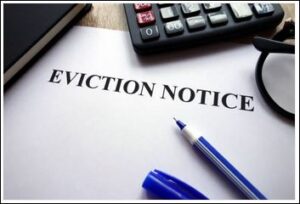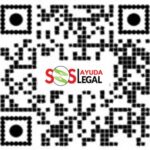 Eviction protections for unpaid rent during COVID
Eviction protections for unpaid rent during COVID
Starting October 1, 2021, new laws:
-
Protect some tenants from evictions for COVID-19 rental debt (unpaid rent or other money due under a rental agreement, like parking fees, that came due between March 1, 2020, and September 30, 2021)
-
Require landlords to take extra steps, like apply for rental assistance, before they can start an eviction (unlawful detainer) case for unpaid rent
-
Allow a tenant to ask to stop an eviction (unlawful detainer) case based on unpaid rent if they are approved for government rental assistance.
Effective August 31, 2020, the COVID-19 Tenant Relief Act (“CTRA”) enacted temporary protections from eviction for residents unable to pay rent and other charges due on or after March 2020. CTRA’s protections apply to rent due March 1, 2020, to September 30, 2021.
The Recovery Act applies to rent and other payments due between October 1, 2021, and March 31, 2022. It also enacted significant revisions to the unlawful detainer process for actions based on non-payment of rent and other amounts due between March 1, 2020, and March 31, 2022. A key requirement is that the landlord applies for rental assistance prior to filing an unlawful detainer based on non-payment.
Get more information about these laws if you’re a tenant and owe past due rent or you are a landlord and your tenant owes rent.
Eviction cases in California
This guide includes information about:
-
COVID-19 eviction protections
-
Landlords: Starting an eviction case (an unlawful detainer court case)
-
Tenants: Understanding your options if you get a Notice to Quitor Summons and Complaint
The information is ONLY for evictions from a home or apartment. Talk to a lawyer for help with commercial (business) evictions.
Eviction protections for unpaid rent
Some tenants are protected from eviction for COVID-19 rental debt COVID-19 rental debt is rent and other payments required under the rental agreement, like utilities or parking fees, that came due between March 1, 2020, and September 30, 2021.
The law protects tenants from eviction for not paying COVID-19 rental debt due between:
-
March 1, 2020, and August 31, 2020, if the tenant gave their landlord a COVID-19-Related Declaration of Financial Distress by the 15-day Notice deadline
-
September 1, 2020, and September 30, 2021, if the tenant gave their landlord a COVID-19-Related Declaration of Financial Distress and paid 25% of their COVID-19 rental debt by September 30, 2021
Find out what happens if your tenant gave you a Declaration or if you gave your landlord a Declaration.
Tenants who still owe COVID-19 rental debt
Starting November 1, 2021, a landlord can sue their tenant for COVID-19 rental debt.
Landlords can’t get a Summons in an eviction case for unpaid rent while their tenant is waiting for a decision on a completed government rental assistance application. If the landlord does file and serve an eviction Complaint while their tenant is waiting for the decision, the tenant can use the fact that they completed the application and are waiting for a decision as a defense to the eviction.
If the tenant is approved for rental assistance, how to ask the court to stop the eviction case?
Tenants may be able to stop an eviction case if they are approved for government rental assistance. If a tenant is approved for rental assistance money after an eviction case (unlawful detainer) is started, they can ask the court to stop the eviction process. Read more about it.
New requirements for landlords owed rent from October 1, 2021, and March 30, 2022. Before a landlord, can start an eviction case (unlawful detainer), they must both:
-
Give their tenant a written Notice under Civil Code Section 1179.10 that has information about government rental assistance.
-
Apply for government rental assistance. If the tenant is eligible and money is available, California will pay up to 100% of the unpaid rent as far back as April 1, 2020.

 In response to public health guidance related to COVID-19 (coronavirus), many U.S. courts (state and federal) and agencies adjusted the way they operate. California court is making its own modifications under the circumstances and has included, among other things: closing courthouses, restricting courthouse access, continuing trials, canceling non-case related activities, rescheduling or permitting videoconferencing of oral arguments, and some courts are lifting restrictions and reopening.
In response to public health guidance related to COVID-19 (coronavirus), many U.S. courts (state and federal) and agencies adjusted the way they operate. California court is making its own modifications under the circumstances and has included, among other things: closing courthouses, restricting courthouse access, continuing trials, canceling non-case related activities, rescheduling or permitting videoconferencing of oral arguments, and some courts are lifting restrictions and reopening.